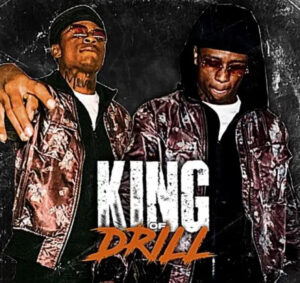The fashion world is no stranger to high-profile acquisitions, but some moves are so subtle they only gain attention when the dust has settled. One such quiet yet monumental shift occurred when KAPITAL, the cult Japanese clothing brand revered for its artisanal craftsmanship and indigo-dyed denim, became part of the LVMH family. This strategic acquisition marks a pivotal moment for both the brand and the luxury conglomerate, signaling a broader appreciation for heritage craftsmanship and niche fashion in the global marketplace.
KAPITAL: The Legacy of Japanese Craftsmanship
KAPITAL began its story in the late 1980s, founded by Toshikiyo Hirata, a Japanese artisan deeply inspired by American workwear and denim culture. The brand, named after Kojima, Japan’s denim capital, quickly gained recognition for its meticulous craftsmanship, high-quality materials, and a distinct design aesthetic that blurred the lines between traditional Japanese artistry and contemporary fashion.
Signature Style
KAPITAL’s designs are instantly recognizable. They embody a mix of vintage Americana, traditional Japanese textiles, and avant-garde detailing. The brand is famous for its boro-inspired pieces (patchworked, repaired, and reworked textiles), indigo-dyed fabrics, and unique silhouettes that balance functionality with artistic expression.
Beyond denim, KAPITAL incorporates elements of wabi-sabi, a Japanese philosophy centered on finding beauty in imperfection. This ethos is evident in their hand-stitched garments, distressed finishes, and raw edges that celebrate the natural wear of clothing.
A Cult Following
For decades, KAPITAL has been a cult favorite, attracting a devoted following of fashion insiders, collectors, and celebrities. Fans admire the brand’s authenticity and refusal to conform to mainstream trends. Each piece tells a story—of the craftsman, the material, and the culture it represents.
LVMH: A Giant in Luxury Fashion
LVMH Moët Hennessy Louis Vuitton is synonymous with luxury, boasting a portfolio that includes brands like Louis Vuitton, Dior, Givenchy, and Fendi. Under the leadership of Bernard Arnault, LVMH has solidified its status as the largest luxury conglomerate in the world, known for acquiring high-performing brands that resonate with global audiences.
Strategic Acquisitions
LVMH’s acquisitions are often strategic, targeting brands that complement its existing portfolio. Recent moves, such as its stake in Off-White and Rimowa, show the conglomerate’s interest in connecting with younger, fashion-forward consumers. KAPITAL’s inclusion in the LVMH family appears to be a continuation of this strategy, as the brand bridges the gap between niche craftsmanship and global luxury.
Why KAPITAL?
The partnership between KAPITAL and LVMH is significant for several reasons:
Craftsmanship and Heritage
KAPITAL embodies the artisanal ethos that resonates with LVMH’s values. By acquiring KAPITAL, LVMH adds a brand to its portfolio that is steeped in tradition and craftsmanship, offering a counterpoint to its more high-gloss, commercial labels.
Appealing to the Niche Market
In a market increasingly dominated by streetwear and mass-produced luxury, there is a growing demand for brands that offer something unique and authentic. KAPITAL’s niche appeal allows LVMH to tap into this trend, attracting discerning consumers who value quality and storytelling.
Expanding in Asia
LVMH’s investment in KAPITAL aligns with its broader strategy of strengthening its presence in Asia, particularly in Japan, where the luxury market remains robust. KAPITAL provides a gateway for LVMH to further engage with Japanese culture and fashion enthusiasts.
What This Means for KAPITAL
While joining the LVMH family undoubtedly brings opportunities, it also raises questions about how KAPITAL will evolve under the conglomerate’s influence.
The Rise of Artisanal Luxury
As consumers increasingly seek authenticity and sustainability, artisanal luxury is becoming a key trend. Brands like KAPITAL, which emphasize craftsmanship and storytelling, are well-positioned to lead this movement. LVMH’s acquisition may encourage other luxury conglomerates to explore similar partnerships with niche, craft-focused brands.
Final Thoughts
The quiet integration of KAPITAL into the LVMH family is a game-changing moment in the world of fashion. For KAPITAL, it represents an opportunity to scale its operations and reach new heights, while LVMH gains a brand that embodies authenticity, craftsmanship, and cultural richness. Together, they have the potential to redefine what luxury means in the 21st century.
As this partnership unfolds, the fashion world will be watching closely. Can KAPITAL retain its artisanal ethos while embracing global expansion? Will LVMH’s resources elevate the brand without diluting its identity? One thing is certain: this collaboration is not just about fashion—it’s about preserving and celebrating the artistry that makes it meaningful.
No comments yet.







